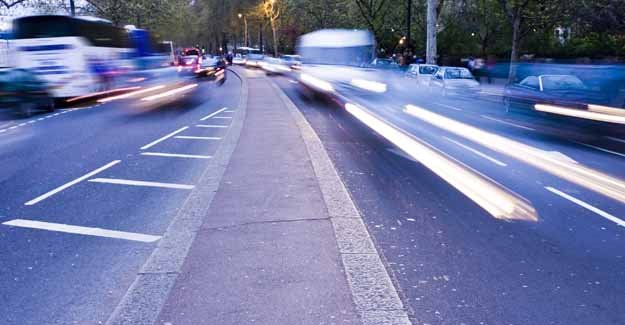The Seven Deadly Sins of Motoring are causing havoc on UK roads which could be avoided by better behaviour behind the wheel, claims the RAC Foundation today (24).
In 2006, 67% of accidents were attributed to driver error or “injudicious action.”* 2007 has seen a similar catalogue of sinful motoring behaviour** and motorists are being encouraged to use the Christmas break to help cut road casualties by reflecting on their misdeeds and resolving to swap their dirty habits for angels’ halos.
The Seven Deadly Sins of Motoring identified by the RAC Foundation are:-
- The need for speed. Speeding is the most common unsafe behaviour on UK roads and 71% of motorists are very worried about drivers lust for speed***. Tight Christmas schedules create time-pressured drivers. Realistic planning and time management is an essential ingredient for keeping this deadly sin at bay
- Rage against the machine. 61% of drivers are very concerned about incurring the wrath of aggressive drivers on the road*** and Christmas congestion acts a red rag to bullies guilty of this year-round sin. Deep breathing and soothing Christmas carols will provide some relief for those suffering from seasonal red mist
- Eyes bigger than the steering wheel. Britain’s gluttonous behaviour has moved from the dinner table to the steering wheel. Eating at the wheel is illegal if it distracts your attention from driving, and it doubles the risk of crashing.**** To maintain a healthy Christmas appetite and to avoid the need for a January crash diet leave the nibbling to one side when you are on the road.
- Wanting it all – without stopping. Gadget-mania feeds this greedy “want it now – can’t wait” sinful driving style. Keeping up with friends and family is essential over the party season, but driving whilst using a mobile phone quadruples the chance of being involved in a serious accident***** and texting while driving provides the greatest of all in car distractions****** making mobile phone use in cars a truly deadly sin.
- I’ll check the tyres – tomorrow: Slothful attitudes to basic car maintenance cause unnecessary breakdowns throughout the year, but can cause huge problems over the winter months. Worn tyres contribute to 10 per cent of all accidents in the wet, while the number of accidents caused by wet roads increases in winter by over 250 per cent. The porthole posse who refuse to fully demist and defrost their cars reduce their vision by up to 90% and risk serious injury to themselves and others, while winter driving without topping up the anti-freeze and the screenwash is inviting disaster.
- Amber gamblers, belligerent bargers: Festive activity leaves road users jostling for space on crowded roads, bringing out the green eyed monster in those desperate to get through the traffic lights or get the last space in the car park. Envy can lead to an increase in red mist ragers so good planning is essential to keep high blood pressure at bay.
- One for the road offenders: Pride in one’s drinking prowess and ‘life and soul of the party’ status makes for a deadly concoction when taken behind the wheel. Nearly one in six deaths on UK roads involve drivers over the legal alcohol limit****** and nearly half of young drivers admit to taking to the road early in the morning after a heavy nights drinking*******. This is a deadly sin that can’t be forgiven – even at Christmas.
The RAC Foundation urges all motorists to use the festive break to consider which Heavenly Virtues they will adopt in 2008.
“None of us is perfect behind the wheel,” said Sheila Rainger, acting director of the RAC Foundation, “but Christmas and the New Year offer the perfect opportunity to confess past failings and resolve to do better. A positive attitude and a healthy dose of the heavenly virtues of temperance, diligence, forgiveness and humility will go a long way towards making our roads safer in 2008.”
NOTES
* Road Casualties Great Britain 2006 – Analysis of Contributory Factors
** Example of the seven deadly sins demonstrated 2007 available on request;
*** RAC 2007 Report on Motoring
****Young, M. (2006) “Eating and Drinking and Driving: A Simulator Study” Brunel University
**** Suzanne P McEvoy, Mark R Stevenson, Anne T McCartt, Mark Woodward, Claire Haworth, Peter Palamara, and Rina Cercarelli (2005) Role of mobile phones in motor vehicle crashes resulting in hospital attendance: a case-crossover study BMJ, Aug 2005
****** Thirty-seven percent of US teenagers admit that text messaging is the biggest distraction while driving, according to a survey of 900 students by SADD (Students Against Destructive Decisions) and Liberty Mutual Insurance Group.
******* DfT Think! Campaign
******** Brake and Green Flag Survey, December 2007


